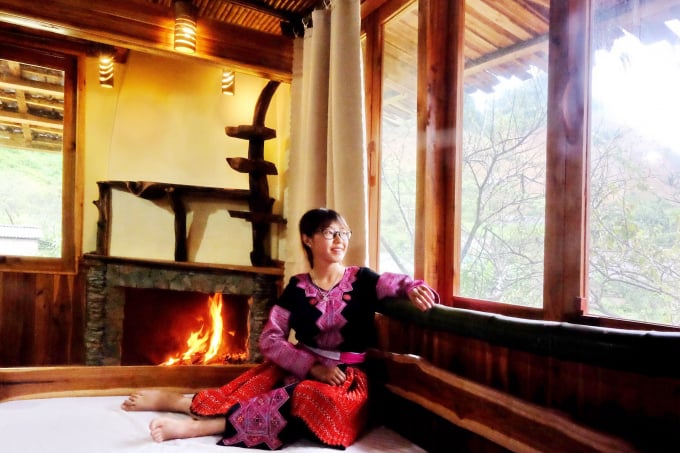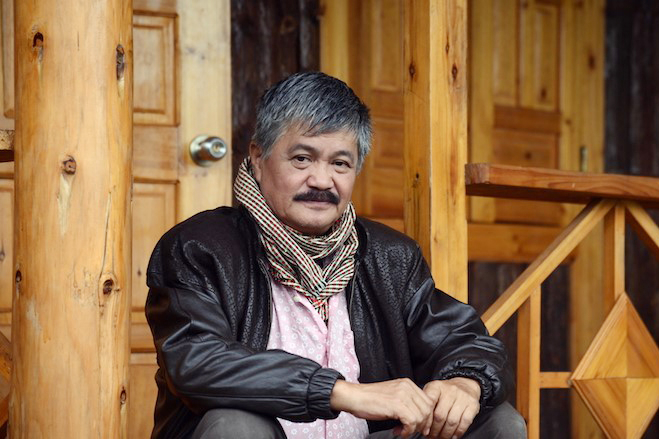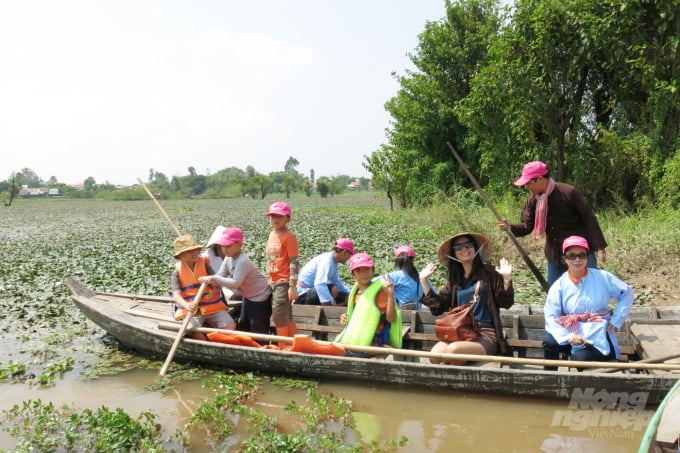May 25, 2025 | 12:19 GMT +7
May 25, 2025 | 12:19 GMT +7
Hotline: 0913.378.918
May 25, 2025 | 12:19 GMT +7
Hotline: 0913.378.918

The ability to meet tourists’ basic needs is a must-have for rural tourism. Photo: DMB.
According to Mr. Duong Minh Binh, President/Founder of Community-based Tourism Travel JSC (CBT Travel), community-based tourism has existed for quite a long time.
It stemmed from the need of people who wish to experience what living a normal farmer's life is, and so many rural households started buying mattresses and cooking meals to serve tourists and let them have a rest in their homes. This model gradually expanded, but it was done in a spontaneous manner, lacking investment in facilities to serve the most basic needs of visitors.
“Although non-governmental organizations (NGOs) were the ones to initiate community-based tourism in Vietnam, they aimed toward the development of community instead of the development of community-based tourism. The models stayed the same, and the face of Vietnam’s community-based tourism remained unchanged.”
After his retirement in 2013, Mr. Binh was invited by an organization to work as a consultant on community-based tourism development in Mai Hich commune, Mai Chau district, Hoa Binh province. As a person with many years of experience in the tourism industry, Mr. Binh realized that the ability to meet tourists’ basic needs was a must-have to sustainably develop tourism in rural areas. Mr. Binh set out the requirements following tourism standards: Make sure that tourists can eat, stay, sleep and “answer the call of nature”.
“When I was a tour organizer for large corporations, I used to take guests down to some rural community-based tourism sites, but the guests who came could not stay. They did not even want to come again because the sites could not guarantee their basic needs.”
Mr. Binh went down to meet the locals and showed them how to use every material they have to make a place for tourists to eat and rest without having to buy expensive equipment. The results were positive. Farmers felt delighted as the costs weren’t too heavy but the facilities were fully equipped. The guests enjoyed using the toilet, dining table, and bedroom made from locally available materials. Experts even held this method in high regard because it contributed to environmental protection.

Mr. Duong Minh Binh, Presiden/Founder of Community-based Tourism Travel JSC (CBT Travel).
"We tell people that tourists come here to live in community cultural space - a space close to nature. Therefore, in order to let visitors have these wishes of wanting to spend more time here or come back many times, local people must consciously preserve such spaces. After understanding that, they always do well and exceed our expectations."
Mr. Duong Minh Binh said that people in many rural areas very much wanted to participate in community tourism to improve their income.
Reality shows that in places where rural tourism is successful, in addition to income from the crops, people acquire another source of income from tourism which can be tens of times higher than pure agroagriculture. That’s the reason why local people want to participate in rural tourism. They are even willing to sell cattle and borrow money to do it.

Tourists experience rural tourism in the Mekong Delta. Photo: Phuong Ha.
Therefore, in order to develop rural tourism, improving farmers' livelihoods is of top priority. This calls for clear and specific policies, especially the loan support policy so that they have funding to invest in this model. The policies should be constructed with the intention of stimulating rural people to be willing to spend their own money to invest and participate in rural tourism because they are the beneficiaries of the model.
Dr. Ngo Thi Thu Trang, Deputy Director of Center for Rural Development - Saemaul Undong, University of Social Sciences and Humanities, Vietnam National University Ho Chi Minh City, said that what the policies need was not only unity from all levels but also specific solutions, the more specific the better.
Policies to support the development of rural tourism need to focus on training people to improve their knowledge and capacity to participate in agriculture and rural development. Another direction that requires attention is the support in terms of marketing specifically digital application because this is the weakest stage of rural tourism.
Translated by Samuel Pham

(VAN) The People's Committee of Tra Vinh province has approved an adjustment to the investment policy for the Green Hydrogen Plant project, increasing its area to approximately 52.76 hectares.
![Reducing emissions from rice fields: [2] Farmers’ commitment to the soil](https://t.ex-cdn.com/nongnghiepmoitruong.vn/608w/files/news/2025/05/05/dsc08881jpg-nongnghiep-140632.jpg)
(VAN) Clean rice cultivation model in Thuong Tan commune, Bac Tan Uyen district, is assisting local residents in achieving sustainable agriculture by substantially reducing costs, increasing productivity, and protecting the environment.

(VAN) At the conference to disseminate Resolution No. 68, AgriS introduced its digital agricultural ecosystem and reaffirmed its commitment to accompanying the Government in promoting private sector development and sustainable agriculture.

(VAN) 'Blue Ocean - Blue Foods' initiative is designed to restore marine ecosystems and establish sustainable livelihoods for local communities by cultivating a minimum of 1,000 hectares of cottonii seaweed in the first three years.
/2025/05/21/4642-3-112707_603.jpg)
(VAN) The V-SCOPE project has made direct contributions to three out of six pillars of the Comprehensive Strategic Partnership between Vietnam and Australia.

(VAN) Facing the threat of rabies spreading to the community, Gia Lai province urgently carries out measures to vaccinate dogs and cats on a large scale.

(VAN) Disease-free livestock farming not only protects livestock herds but also stabilizes production and livelihoods for many farmers in Tuyen Quang.